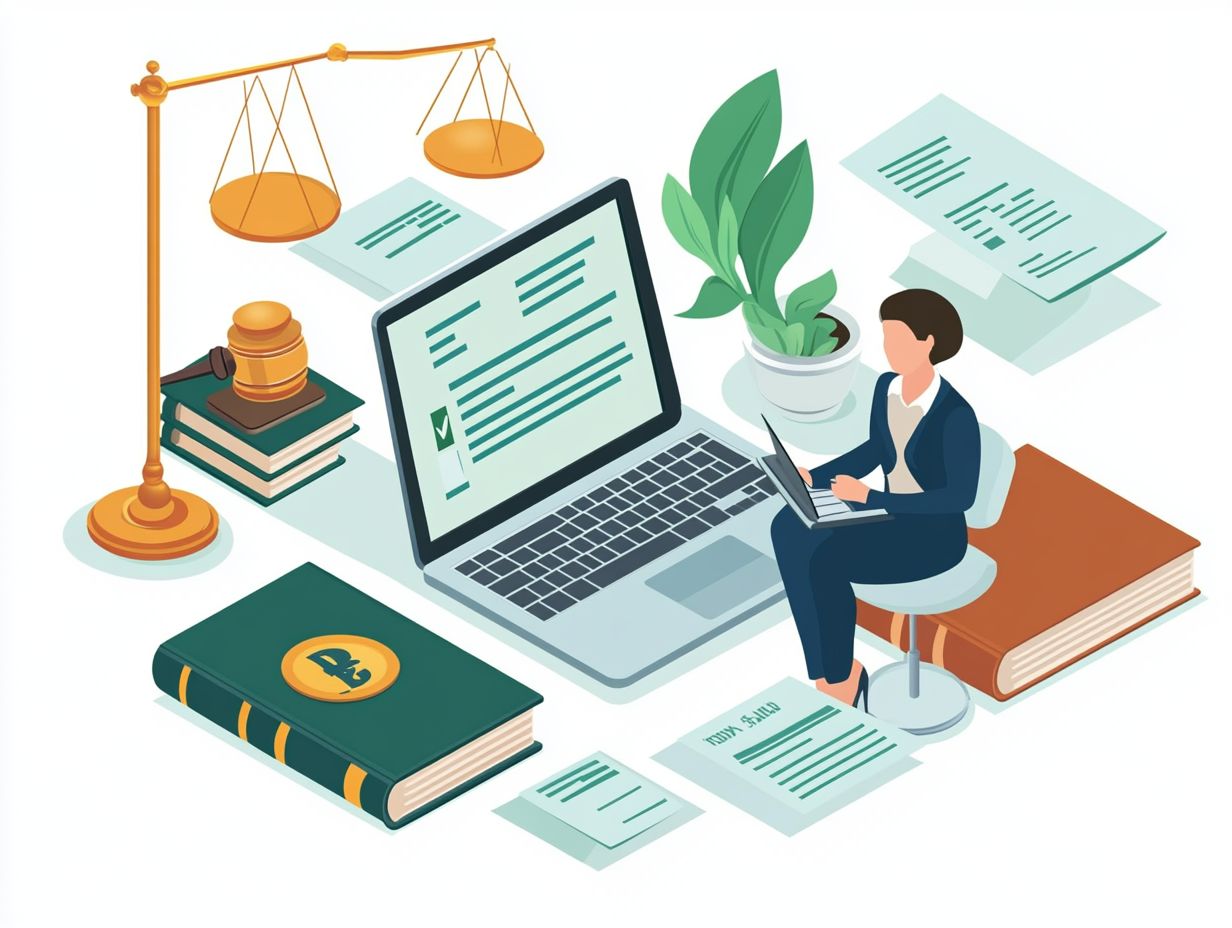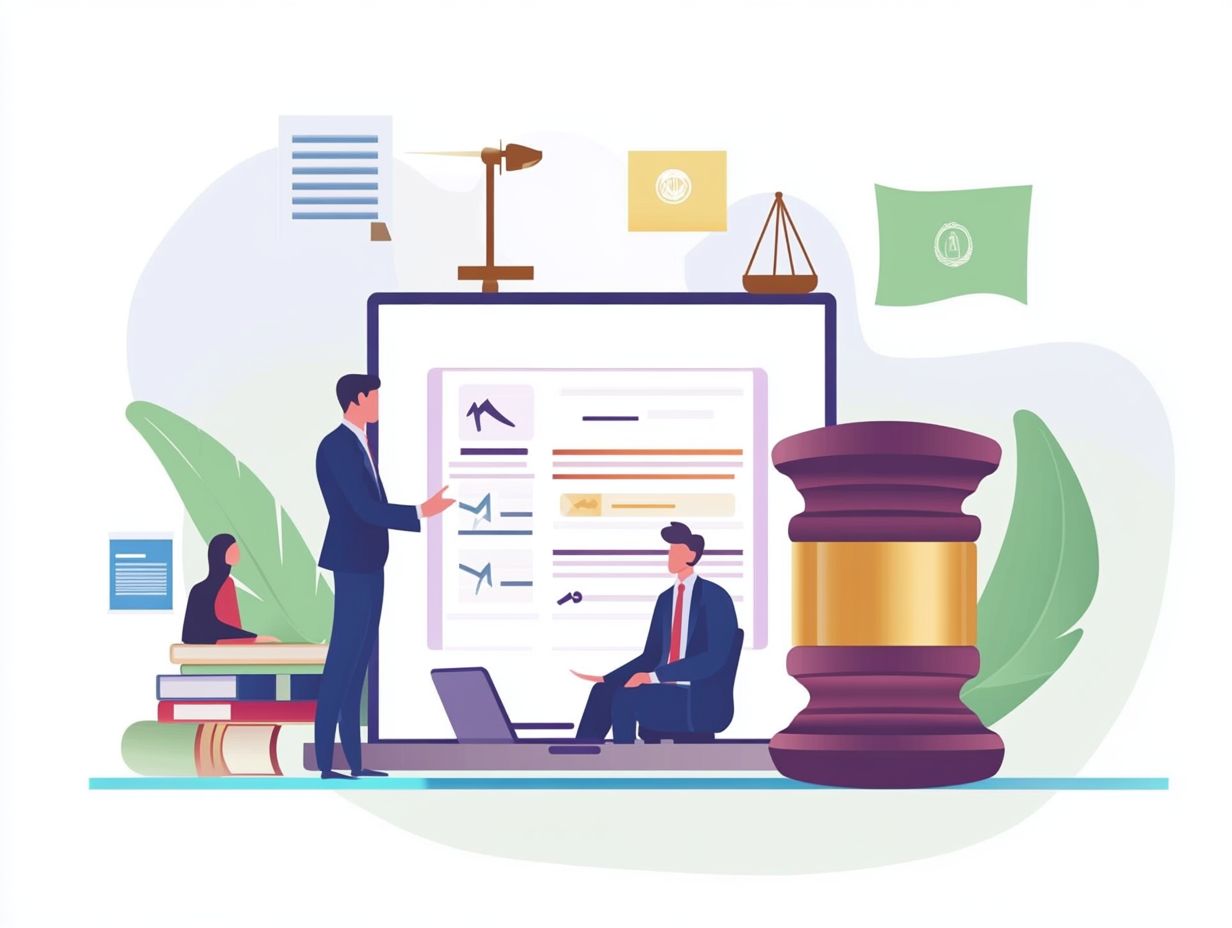56. How CRM Can Enhance Client Experience in Law
In today’s fast-paced legal landscape, your clients’ expectations are soaring higher than ever. A robust Customer Relationship Management (CRM) system can be a true game-changer for your law firm, changing how you interact with clients and streamline your operations.
This article showcases the significance of CRM in law firms, emphasizing its benefits in enhancing client experiences, improving communication, and simplifying processes.
Imagine transforming your practice! You ll explore key features that make CRM indispensable for legal practices, along with insights on successful implementation and inspiring real-life success stories that demonstrate its profound impact.
Dive into the world of CRM and watch your practice thrive!
Contents
- Key Takeaways:
- Why You Need CRM in Your Law Firm
- Key Features of CRM for Law Firms
- Implementing CRM in Your Law Firm
- Success Stories: How CRM has Improved Client Experience in Law Firms
- Frequently Asked Questions
- What is CRM and how does it relate to the legal industry?
- How can CRM improve communication with clients in the legal industry?
- What are some specific features of CRM that can benefit law firms?
- How does CRM help with client retention and satisfaction in the legal industry?
- Can CRM Benefit Both Small and Large Law Firms?
- How Can Law Firms Implement CRM Effectively to Enhance Client Experience?
Key Takeaways:

Implementing CRM in law firms can greatly enhance client experience by streamlining communication and processes. Key features of CRM for law firms, such as client database management and analytics, can help improve efficiency and decision-making. When considering implementing CRM in a law firm, it’s important to carefully evaluate options and best practices for successful implementation and improved client experience.
What Is CRM and Why Should You Care?
Customer Relationship Management (CRM) is an essential system for law firms and attorneys, crafted to elevate client management by streamlining processes and improving how clients feel about your service.
It seamlessly integrates various functionalities, such as managing potential clients, document organization, and compliance tracking. This ensures you can effectively manage client profiles and interactions while safeguarding sensitive data in accordance with regulations like GDPR (General Data Protection Regulation) and HIPAA (Health Insurance Portability and Accountability Act).
These specialized systems not only facilitate the tracking of client interactions and case details but also provide invaluable insights that can guide your strategic decision-making.
For instance, platforms like Clio empower law firms to make tasks easier by alleviating administrative burdens and allowing you to concentrate on your core legal work.
Meanwhile, Ringy enhances communication by enabling effortless messaging and appointment scheduling, ensuring your clients stay informed and engaged throughout their legal journey.
By fostering strong relationships and improving operational efficiency, CRM tools can significantly elevate both productivity and client satisfaction, ultimately leading to a more robust practice.
Why You Need CRM in Your Law Firm
Implementing a Customer Relationship Management (CRM) system in your law firm presents a wealth of advantages that can significantly elevate your business performance.
You ll enjoy an improved client experience, streamlined marketing automation, and enhanced productivity through efficient task management and lead conversion processes. Embracing a CRM means not just keeping pace with industry standards, but positioning yourself for sustained success.
Enhancing Client Experience
Enhancing your client experience is a pivotal aspect of implementing CRM systems in your law firm. For more insights, consider exploring the best practices for CRM in the legal sector. This approach allows you to provide personalized services and maintain consistent communication, thereby fostering stronger relationships with your clients.
By streamlining the onboarding process, your CRM system enables you to efficiently gather and manage essential client information. This ensures clients feel valued from the very start. Ongoing communication is equally crucial; regular updates and check-ins keep clients engaged and informed throughout their legal journey.
Additionally, analyzing data from CRM tools gives you valuable insights into client preferences and behaviors, giving you the power to tailor your approach effectively.
Integrating feedback mechanisms ensures that your clients can voice their opinions, leading to continuous improvements in services and an enhanced user experience, ultimately heightening client satisfaction.
Ready to elevate your law practice? Start exploring CRM solutions today!
Making Communication and Processes Easier
Simplifying communication and processes is vital for your law firm when using CRM software. It enables seamless interactions between attorneys and clients by automating email communication, scheduling, and document management.
Leverage various communication channels to ensure client inquiries are addressed promptly. This creates a more responsive and client-centric atmosphere.
Integrating your CRM with existing legal software significantly boosts efficiency. It allows information to flow smoothly without interrupting your workflow.
With mobile accessibility, attorneys can manage client communications and case details on the go. This enhances their availability and responsiveness.
Ultimately, by implementing workflow automation, you elevate productivity and reduce administrative burdens. This frees your legal team to focus more on core responsibilities and nurturing client relationships.
Key Features of CRM for Law Firms

A comprehensive CRM tailored for law firms includes essential features that meet the unique demands of legal professionals:
- Robust client database management
- Streamlined task and case management
- In-depth reporting capabilities
This CRM enhances overall operational efficiency, allowing you to focus on what truly matters providing exceptional legal services.
Client Database Management
Effective client database management is crucial for CRM systems in law firms. It allows you to maintain detailed client profiles while ensuring data security and compliance with regulations.
This practice streamlines your daily operations and enhances your ability to track interactions with clients. This enables you to deliver tailored services.
By organizing client information efficiently, your legal team can easily access critical data. This leads to knowledge-based decision making and heightened client satisfaction.
A robust CRM solution is vital in safeguarding sensitive information. It helps you maintain data integrity and adhere to legal compliance standards.
In doing so, you protect client confidentiality and foster trust an essential element of any professional relationship.
Task and Case Management
Task and case management functionalities in CRM systems help you take control of your workload. This ensures that every case progresses effortlessly through workflow automation.
By streamlining task assignments and setting clear deadlines, these systems allow you to allocate your time and resources with precision. Automated reminders for critical tasks serve as your safeguard against oversights.
This helps you and your team stay focused and on track. The ability to monitor case progress in real-time provides enhanced visibility into each matter.
This enables you to make swift adjustments when needed. This level of organization elevates your overall productivity and allows you to juggle multiple cases seamlessly, fostering a more effective legal practice.
Analytics and Reporting
The analytics and reporting features within CRM systems offer you invaluable insights into your law firm s performance. They help you pinpoint trends in client interactions and identify areas for improvement in business performance.
By leveraging these capabilities, you can generate comprehensive reports on lead conversion rates, client satisfaction metrics, and overall case progress. This granular data gives you the power to strategically fine-tune your marketing efforts and client management strategies.
Understanding client feedback and satisfaction enables you to refine your practices. This ultimately enhances both efficiency and client loyalty.
Utilizing analytics not only supports your knowledge-based decision making but also cultivates a culture of continuous improvement within your firm. This ensures that you stay competitive in the rapidly evolving legal landscape.
Implementing CRM in Your Law Firm
Implementing a CRM system is not just a step; it’s a game-changer for your law firm. With careful planning, you can transform how you operate and serve clients.
It s essential to tailor the system to address the unique needs of your legal practice, all while ensuring it remains scalable for future growth.
Considerations and Best Practices

When you re considering the implementation of a CRM system in your law firm, understanding best practices is key for ensuring a seamless onboarding process and a positive experience for all legal professionals involved.
Choosing a user-friendly CRM that aligns with your firm s specific needs is crucial for fostering acceptance and encouraging team adoption.
Providing comprehensive training sessions not only gives power to your users but also addresses potential issues before they become significant problems.
It s vital to solicit feedback from your team throughout the transition; their insights can highlight areas for improvement and create a team-focused atmosphere.
Focusing on these aspects helps maximize productivity while minimizing disruption, ultimately leading to a more efficient workflow and enhanced client service.
Success Stories: How CRM has Improved Client Experience in Law Firms
Success stories from law firms that have embraced CRM systems reveal a remarkable transformation in client experience.
You can witness how these firms have enhanced their case management processes and boosted referrals, all due to improved client interactions.
This shift elevates the service provided to clients and positions the firm as a leader in client-centric practices.
Real-Life Examples and Results
By examining real-life examples of law firms that have embraced CRM systems, you can gain valuable insights into the results achieved, particularly regarding client satisfaction and increased referrals.
Consider the case of a mid-sized family law firm that implemented a CRM solution to enhance client communication. This firm saw a remarkable 30% reduction in average case processing times, thanks to automated reminders for appointments and document requests.
By leveraging the CRM’s analytics features, they uncovered key client trends, enabling them to offer more tailored services and significantly boost client retention.
Another compelling example is a personal injury firm that revamped its tracking of case statuses through a centralized database. This upgrade enables quicker responses to client inquiries, resulting in soaring client satisfaction ratings, as evidenced by a 40% increase in online reviews and referrals.
These cases show how certain CRM features, such as automated workflows and comprehensive dashboards, can drive substantial improvements in law firm operations.
Frequently Asked Questions
What is CRM and how does it relate to the legal industry?
CRM stands for Customer Relationship Management, and it is a software system that helps businesses manage interactions with their clients. In the legal industry, think of it as a digital assistant for your client communications, enhancing client experience by improving communication, streamlining processes, and providing better service.
How can CRM improve communication with clients in the legal industry?

CRM can enhance client experience by providing a central database for client information and communication history. This allows for faster and more efficient communication, as well as personalized and targeted communication based on client preferences.
What are some specific features of CRM that can benefit law firms?
- Case management
- Document management
- Calendar and task management
- Client portal access
These features help streamline processes and provide clients with convenient and timely access to information.
How does CRM help with client retention and satisfaction in the legal industry?
By improving communication and streamlining processes, CRM can enhance client experience and ultimately lead to higher levels of client retention and satisfaction. For more insights, check out this guide on how to use CRM for better client management. Clients feel more valued and supported when their needs are promptly addressed, leading to a stronger and more positive relationship with the law firm.
Ready to elevate your client experience? Explore CRM options today!
Can CRM Benefit Both Small and Large Law Firms?
Yes, Customer Relationship Management (CRM) can greatly enhance client experiences for all law firms. It helps manage and personalize client interactions effectively.
Larger firms with extensive client bases can streamline their complex processes. Meanwhile, small firms can utilize CRM’s organization and automation features to improve service.
How Can Law Firms Implement CRM Effectively to Enhance Client Experience?
To use CRM effectively, law firms must first define their specific needs and goals. Choosing the right CRM system is essential to align with those goals.
Proper training and integration with existing processes are vital for success. Regular updates and maintenance are also crucial to maximize benefits for clients.






